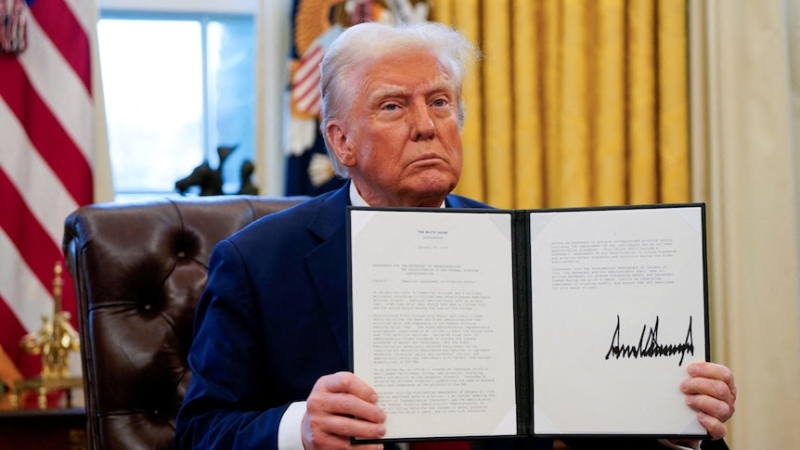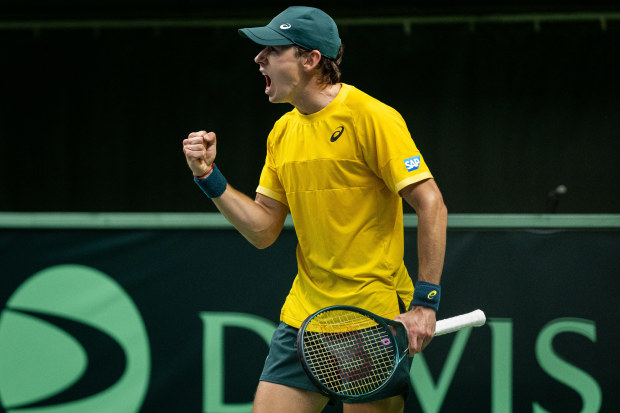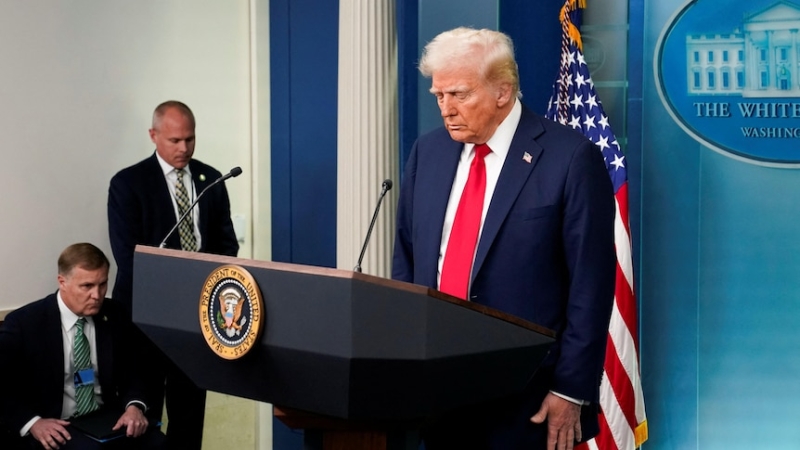President Donald Trump after signing one of his many executive orders. (Reuters: Elizabeth Frantz )
The White House is about 15,000 kilometres away from Peter Bosip's understated office in central Port Moresby.
But with a big stroke of one of US President Donald Trump's big black pens, Mr Bosip's work as the "barefoot lawyer" was affected, severely.
And with that, so were the lives of thousands of people in remote provinces of Papua New Guinea.
"We are worried," Mr Bosip told the ABC.
"Our organisation itself will be OK, but it's the people living in the rural communities who are recipients of our services, [it's those] people who will be impacted."
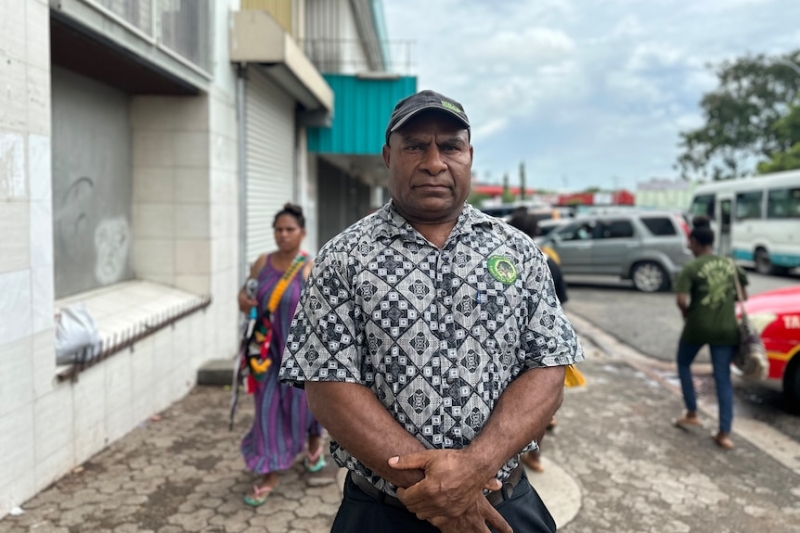
The "barefoot lawyer" Peter Bosip says the freeze on aid will impact rural communities. (ABC News: Belinda Kora)
Mr Bosip's work isn't fancy, but for many Papua New Guineans it's life-changing.
His "barefoot lawyer" teams work with rural communities in the country, teaching them about their legal rights when big mining or logging companies come knocking.
The organisation receives a small amount of USAid funding — funding that has now been frozen, after Mr Trump's executive order to stop all US foreign aid for 90 days to assess whether it aligns with an "America First" policy.
Two projects Mr Bosip was working on are now paused.
And he's far from alone.
What Trump presidency means for Australia's neighbours
Photo shows Donald and Melania Trump wearing floral necklaces.

From Timor-Leste to Tonga, aid projects across the region have been put on hold. And those in the sector say "the Trump effect" is starting to have real-life impacts on the ground.
"Everyone's scrambling trying to work what this means," said Josie Pagani, chief executive of community development charity ChildFund New Zealand.
"We don't know the full impact yet, it feels like a tsunami at the moment. Every day you're like, 'oh my gosh is this going to be affected? What about this?'".
'Stronger, safer, more prosperous'
Across the region there is mass confusion about how this temporary freeze will impact projects.
There is also mass fear about whether the impacted aid projects will adhere to the "America first" policy, once the 90 days is up.
Organisations that have USAid funding have ben advised not to talk to the media and the vast majority of organisations that the ABC reached out to declined to comment, fearing retribution.
All the changes Trump signed off on during his first day in office
Photo shows man signs paper at desk
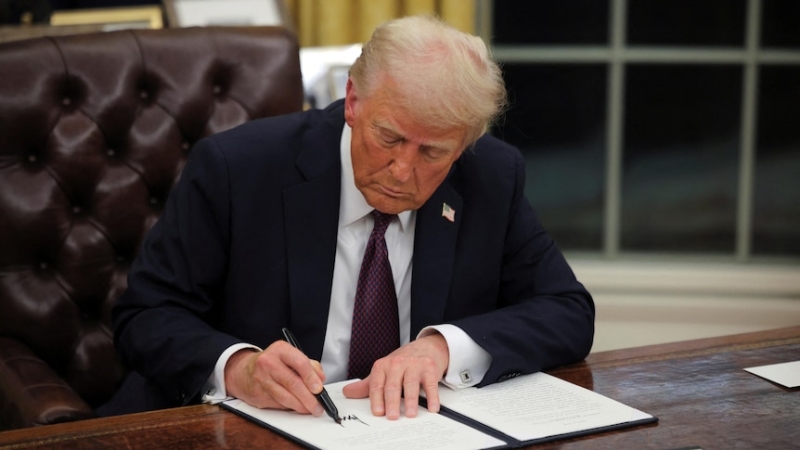
In a press release outlining the plan, the US Department of State said Mr Trump was "no longer going to blindly dole out money with no return for the American people".
US Secretary of State Mark Rubio later outlined a broad criteria that agencies and organisations receiving USAid funding must prove in order to continue gaining funding, which would be assessed over the next three months.
"Every dollar we spend, every program we fund, and every policy we pursue must be justified with the answer to three simple questions," he said.
"Does it make America safer? Does it make America stronger? Does it make America more prosperous?”
Ms Pagani's group ChildFund New Zealand receives USAid funding. But she said these were the "wrong questions" to ask.
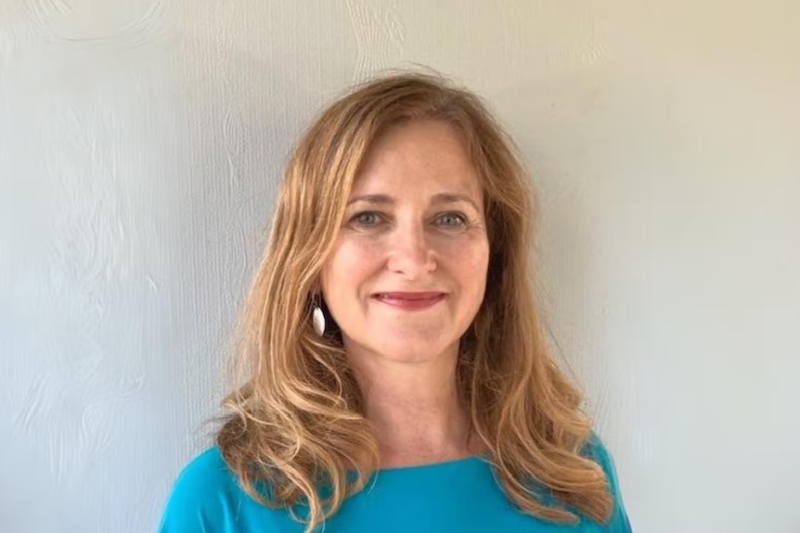
Josie Pagani's organisation received USAid funding. (Supplied)
"Yes, the aid sector needs to be accountable," she said.
"Any government, whether the Trump government or the Australian government, has a right to ask: is our aid delivering to the people we say we're helping?
"But aid isn't there to make America rich, it's not there to make New Zealand rich, it's not there to make Australia rich."
How big is USAid in the region?
According to the Lowy Institute, the United States spent about $3 billion in the Pacific region over the past decade, making up about seven per cent of all development finance.
Australia is by far the biggest donor, contributing about 38 per cent of all aid since 2008.
China becomes second largest provider of aid to the Pacific
Photo shows A road with palm trees along the side, and blue sky.
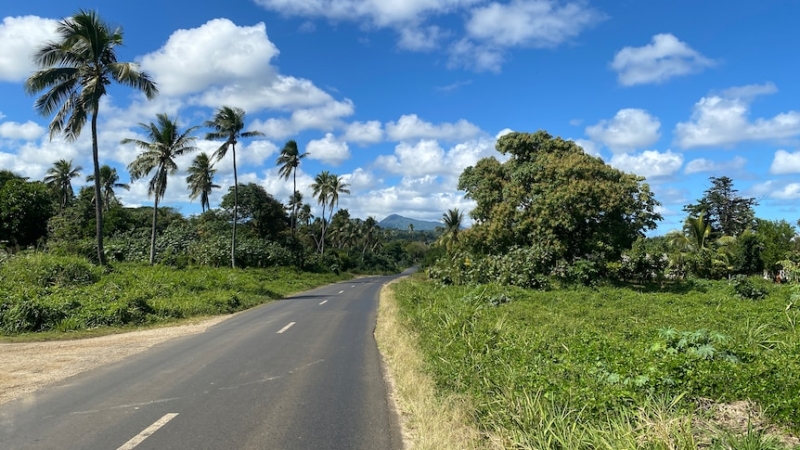
The majority of the USAid budget in the Pacific — about 80 per cent — goes toward economic assistance for countries it holds Compact of Free Association agreements with, such as The Federated States of Micronesia and Palau.
Of the remaining 20 per cent, half of that goes to Papua New Guinea.
"The US-funded projects used to be quite modest [in Papua New Guinea], but they picked up towards the end of the 2010s," Paul Barker, executive director of Papua New Guineas's Institute of National Affairs, told the ABC.
Ironically, Mr Barker's organisation itself receives USAid funding.
"I was in a meeting late last year in Japan when the US embassy staff gave reassurance to the participants from South-East Asia and the Pacific that 'the United States is a reliable partner for the long haul'.
"But obviously we live in uncertain times and there's a level of uncertainty over [Mr Trump's decision].
"It's the start of the year and it's the time where one is planning programs and rollouts, and obviously if you have a program that has US funding [you're] looking to defer, cancel or look to other donors, and that includes ourselves."
'We just don't know'
In Solomon Islands, for example, USAid it has contributed more than $10 million in removing unexploded bombs from the area near the capital Honiara, including the funding of The Halo Trust, which surveys new ground that might hold unknown bombs.
The ABC reached out to the organisation involved in the unexploded ordinance removal to find out if its operations would continue, but it did not respond.
What lies beneath
Photo shows A drone shot of a mostly sunken ship wreck near a beach.
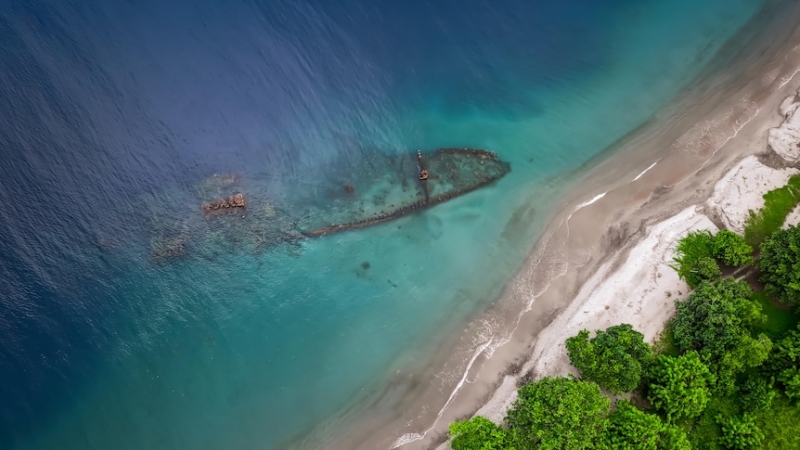
Some experts have predicted China will see the USAid freeze as an opportunity to increase its aid in the region —particularly in light of the US pulling out of the World Health Organisation and the Paris Agreement.
Others have pointed to Australia as the likely candidate to "step up".
Cameron Hill from the Australian National University development policy centre told the ABC the US may look to putting more of an emphasis on private sector development.
"Which is challenging in the Pacific region, for example, because of the structure of the economies," he said.
"Maybe we'll see more channelling of USAid through faith-based organisations and churches. And there will probably be more of an emphasis on aid directly linked to the US' geopolitical goals, such as cyber-security and maritime security."
On the ground, confusion reigns.
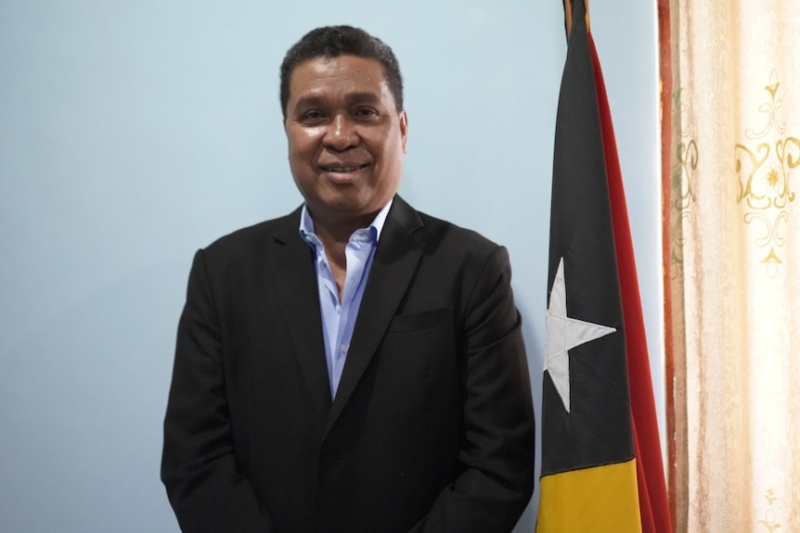
Virgilio da Silva Guterres said there were many unknowns. (ABC News: Vonia Vieira)
In Timor-Leste, Ombudsman of Human Rights and Justice Virgilio da Silva Guterres signed an agreement with USAid to fund an anti-corruption integrity and accountability project.
He said they had no idea what would happen.
"We just don't know," he said. "But going on the news around the world, if that policy is the policy, it will affect our plans."
For Peter Bosip, it's simple.
"This action withdraws trust," he said.
"In the rural communities we work in in Papua New Guinea, [that] is important [and] it will have big implications and a big impact."

